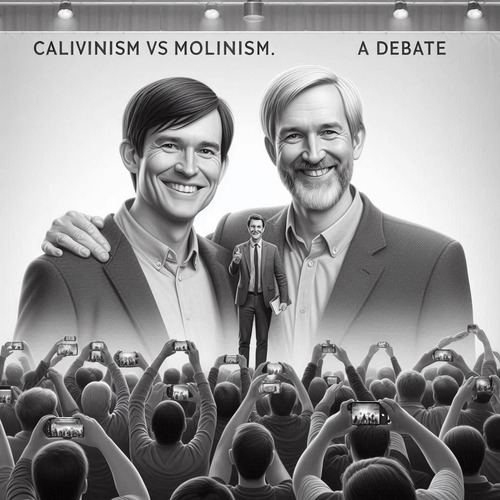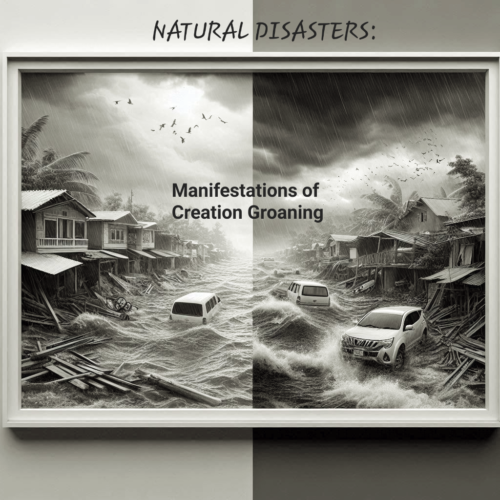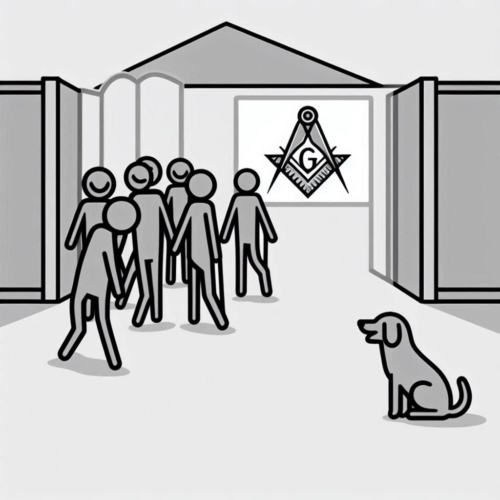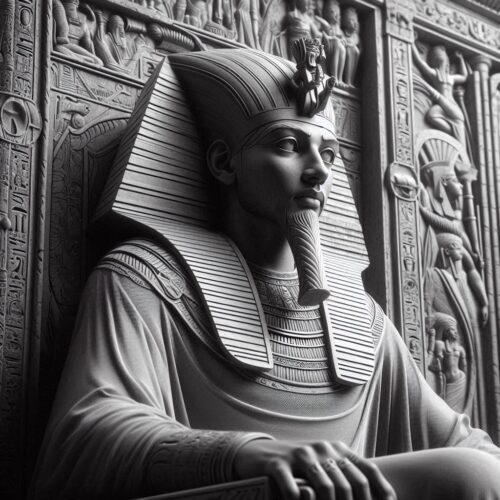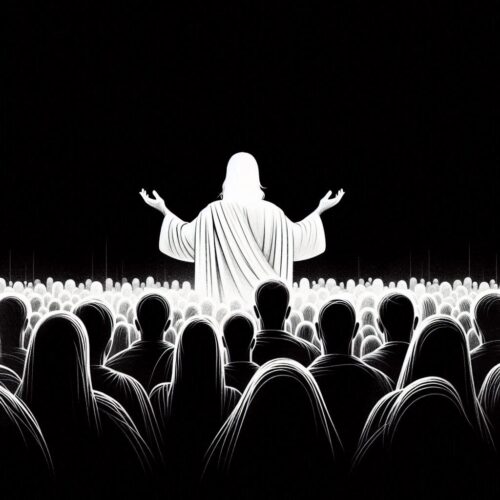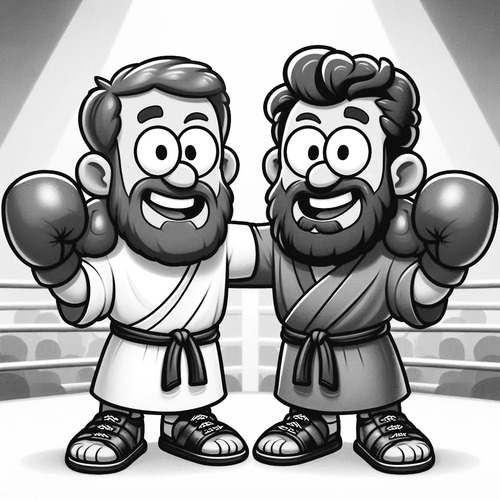Calvinism vs Molinism: A Deep Dive into the Debate
The Calvinism vs. Molinism debate centres on the intricate relationship between divine sovereignty and human free will. Both perspectives seek to reconcile these two pivotal aspects of Christian doctrine, yet they arrive at markedly different conclusions…
Understanding Calvinism
Calvinism, named after John Calvin, emphasizes the sovereignty of God in all aspects of salvation. It is often summarized by the acronym TULIP:
- Total Depravity: Humankind is utterly corrupt and incapable of initiating or contributing to their own salvation.
- Unconditional Election: God’s choice of who will be saved is not based on any human merit or foreseen faith, but solely on His sovereign will.
- Limited Atonement: Christ’s atoning sacrifice was intended only for the elect, and not for all humanity.
- Irresistible Grace: Those whom God has chosen for salvation will inevitably and irresistibly be drawn to Christ, as God’s grace cannot be ultimately resisted.
- Perseverance of the Saints: Those who are truly saved will persevere in their faith until the end, as God’s grace ensures their preservation.
Arguments for Calvinism
- Scriptural Basis: Calvinists argue their doctrine is firmly rooted in Scripture. Key supporting texts include Ephesians 1:4-5, which speaks of God choosing believers “before the foundation of the world,” and Romans 9, where Paul discusses God’s sovereign choice in electing Jacob over Esau.
- Divine Sovereignty: Calvinism emphasizes God’s absolute sovereignty, suggesting God’s will is ultimately determinative in all things, including salvation. Ephesians 1:10-11 further underscores this by stating God “works all things according to the counsel of His will.”
- Human Inability: Referencing passages like Romans 3:10-12 and Ephesians 2:1-3, Calvinists assert we, in our sinful state, are incapable of choosing God without divine intervention. The vision of the valley of dry bones in Ezekiel 37 vividly illustrates human inability. Just as the dry bones were lifeless until God breathed life into them, we too are spiritually dead and incapable of choosing God unless the Holy Spirit first intervenes to open our eyes to the truth and our wretchedness.
- God’s Responsibility for Evil: Calvinists argue Scripture supports the view that God, in His sovereignty, permits, even determines certain evil events for His purposes. For instance, Isaiah 45:7 states, “I form light and create darkness; I make peace and create calamity; I, the LORD, do all these things.” Acts 2:23 also illustrates this concept, explaining that Jesus was “delivered by the determined purpose and foreknowledge of God” yet crucified by lawless hands. Despite this, humans are held accountable for their actions.
Responses to Calvinism from Molinism
- Divine Responsibility for Evil: Molinists argue Calvinism’s view of divine sovereignty makes God responsible for evil, which seems inconsistent with God’s nature as wholly good. They assert there is no Scripture that explicitly teaches unilateral divine determinism—where God unilaterally determines all events without human input.
- Nature of God’s Love: Molinists contend that a God who pre-selects individuals for salvation and damnation is inconsistent with the biblical depiction of God’s universal love and desire for all to be saved (1 Timothy 2:4).
- Human Responsibility: Molinists argue Calvinism undermines human responsibility and moral accountability, suggesting that if God predetermines everything, humans cannot be truly held accountable for their actions.
Understanding Molinism
Molinism, named after the 16th-century Jesuit theologian Luis de Molina, proposes a middle ground that affirms both God’s sovereignty and human free will through the concept of “middle knowledge.” This middle knowledge allows God to know what any free creature would do in any given circumstance, thus enabling Him to actualize a world where His purposes are achieved without violating human freedom.
Arguments for Molinism
- Middle Knowledge: Molinism posits God possesses knowledge of all possible worlds and the free decisions of creatures within those worlds. This allows for divine providence without compromising human freedom.
- Scriptural Support for Free Will: Passages such as Deuteronomy 30:19 and Joshua 24:15, which exhort individuals to choose life and serve the Lord, are used to support the Molinist emphasis on genuine human freedom.
- God’s Universal Salvific Will: Molinism is often seen as more consistent with Scriptures that indicate God desires all people to be saved and come to the knowledge of the truth (1 Timothy 2:4, 2 Peter 3:9).
Objections from Calvinism
- Sovereignty Compromised: Calvinists argue Molinism diminishes God’s sovereignty by suggesting God’s plans are contingent upon human decisions.
- Inconsistent with Total Depravity: Calvinists maintain Molinism fails to account for the depth of human sinfulness and the consequent inability to choose God without divine intervention.
- Lack of Scriptural Support: Calvinists point out Molinism relies on philosophical constructs not explicitly supported by Scripture. Unlike Calvinism, which has direct biblical backing for God’s determinative role, Molinism lacks clear scriptural texts supporting its view of middle knowledge.
Where Calvinism Scores: In Scriptural Backing
In conclusion, we note Calvinism presents a compelling theological framework that is firmly rooted in Scripture. The doctrine of unconditional election aligns with passages such as Ephesians 1:4-5 and Romans 9:16, that highlight God’s sovereign choice, independent of human merit or foreknowledge. Calvinism’s emphasis on total depravity and irresistible grace resonates with the biblical portrayal of humanity’s utter dependence on divine grace for salvation (Ephesians 2:1-9).
Moreover, Calvinism’s acknowledgment of God’s responsibility in permitting and determining certain evils, as illustrated in Isaiah 45:7 and Acts 2:23, underscores a nuanced understanding of divine sovereignty that does not absolve human beings of their moral responsibility. Ephesians 1:10-11 encapsulates the comprehensive nature of God’s sovereignty, stating God “works all things according to the counsel of His will.”
While Molinism offers an appealing reconciliation of divine sovereignty and human freedom, it often relies on philosophical constructs that are less explicit in Scripture. The Calvinist perspective, by contrast, consistently upholds the supremacy of God’s will and the sufficiency of His grace, as depicted throughout the biblical narrative. Calvinism stands out as the more thoughtful and faithful interpretation of God’s redemptive work. It acknowledges the depth of human sin, the necessity of divine intervention, and the ultimate sovereignty of God, providing a robust and scripturally sound framework for understanding salvation.
Related Reads
- The Big Debate: Can God be Truly Sovereign and Man be Free?
- The Calvinist-Arminian Debate
- Challenges to Calvin’s View, and the Calvinist Response
- Why Does God Choose Some and Not Others for Salvation?
- The Foreknowledge of God: Far More Than Mere Foresight
Editor's Pick
Geologic Dating: Is It a Showstopper for Young Earth Science?
Are Millions of Years Written in Stone? When you pick up a rock, you're holding a piece of Earth's history [...]
Human Immunology: Evidence of Design in Our Defence Systems
The human immune system is one of the most remarkable examples of biological complexity in nature. As our understanding of [...]
The Logos: Why Does John Call Jesus the Word?
"In the beginning was the Word, and the Word was with God, and the Word was God" (John 1:1). The [...]
Hosea & Gomer: Why God Commands a Prophet to Marry a Prostitute
WHEN A MARRIAGE BECOMES A SERMON: ON GOD’S RADICAL LOVE… The command is jarring, even offensive to our modern sensibilities: [...]
Colossians 1:15: How is Jesus the Firstborn of All Creation?
The title “Firstborn of All Creation” is one of Scripture’s most emphatic descriptions of Christ’s pre-eminence, and yet, is often [...]
All of Creation is Groaning: What Does Scripture Mean?
The Apostle Paul presents a remarkable insight in Romans 8:19-22, declaring "the whole creation has been groaning as in the [...]
Freemasonry’s Dark Secrets: A Biblical Analysis
The relationship between Freemasonry and Christianity represents more than just theological controversy—it raises profound spiritual concerns that demand careful examination. [...]
Why Did God Harden Pharaoh’s Heart? The Reformed View
Why did God harden Pharaoh’s heart? Few passages in Scripture present a greater theological challenge than the account of God [...]
Lie From Hell: Jesus Was Just a Good Moral Teacher
Editor’s Note: This post is part of our series, 'Satan’s Lies: Common Deceptions in the Church Today’… Jesus Christ can’t [...]
Saved, Being Saved and Will Be Saved: Salvation’s Three Tenses
THE MULTIDIMENSIONAL REALITY OF SALVATION Salvation's Three Tenses: Salvation is far more than a single moment of spiritual transaction. It’s [...]
SUPPORT US:
Feel the Holy Spirit's gentle nudge to partner with us?
Donate Online:
Account Name: TRUTHS TO DIE FOR FOUNDATION
Account Number: 10243565459
Bank IFSC: IDFB0043391
Bank Name: IDFC FIRST BANK


